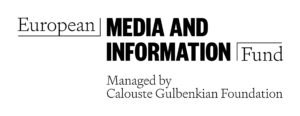Unalaska broadband is latest of federally supported rural projects
The Aleutians project is one of several in Alaska that have been supported by significant federal funding

By Yereth Rosen, Alaska Beacon
The remote Aleutian Island community that is the nation’s top-volume seafood port now has high-speed internet service for most of its residents, thanks to a federally supported fiber-optic project.
Completion of the Unalaska portion of the AU-Aleutians Fiber Project is the latest milestone in a wide-ranging effort to upgrade telecommunications throughout rural Alaska.
It required an 1,300km cable running underwater between the Aleutian city of about 4,000 people and Kodiak. Officials from GCI, the company behind the project, and from various levels of government gathered in person and online at the Alaska Native Heritage Center on Thursday to celebrate the accomplishment. Beyond Unalaska, future work on the project over the next two years will connect five additional communities in the region.
Among those marking the occasion was Mike Dunleavy, the governor, who addressed via a recorded message the GCI gathering at the Alaska Native Heritage Center in Anchorage.
“This service has the potential to transform not just Unalaska but the communities of the Aleutian chain, the Alaska Peninsula and Kodiak as well,” Mr Dunleavy said.

It means more than convenience and better entertainment, he added.
“It bridges the digital divide for thousands of Alaskans spread across vast distances,” he said. “It’ll allow access to tele-medicine, improve education and public safety, and open up the jobs of today in the future that can be done from anywhere, by any Alaskan with the skills and the right broadband speed.”
The Aleutians project is one of several in Alaska that have been supported by significant federal funding. Of the $58 million (€54 million) for the project’s first phase, $25 million came from the Department of Agriculture’s Rural Utilities Service ReConnect programme.
“The digital divide is starting to close in Unalaska, and it’s starting to close in other parts of Alaska, too, through these other public-private partnerships,” Greg Chapados, the GCI president, said at the Thursday ceremony.
A second phase of the AU-Aleutians project, to extend service to six additional rural communities stretching from the Alaska Peninsula to the Kodiak archipelago, received a $29.3 million grant in September from the National Telecommunications and Information Administration’s tribal connectivity programme.
Rural Alaska broadband service has received a substantial boost from the federal Infrastructure Investment and Jobs Act of 2021. In all, the law allocated $65 billion for broadband services, with much of that aimed at rural and indigenous communities through the existing programmes that are funding Alaska projects.
The infrastructure bill was the source for most of a $136 million package of grants announced in November for broadband projects in regions spanning from the north-western Arctic coastline to the southern tip of Southeast Alaska.
Alaska Beacon is part of States Newsroom, a network of news bureaus supported by grants and a coalition of donors as a 501c(3) public charity. Alaska Beacon maintains editorial independence. Contact Editor Andrew Kitchenman for questions: in**@al**********.com. Follow Alaska Beacon on Facebook and Twitter.
This article has been fact-checked by Arctic Business Journal and Polar Research and Policy Initiative, with the support of the EMIF managed by the Calouste Gulbenkian Foundation.
Disclaimer: The sole responsibility for any content supported by the European Media and Information Fund lies with the author(s) and it may not necessarily reflect the positions of the EMIF and the Fund Partners, the Calouste Gulbenkian Foundation and the European University Institute.
